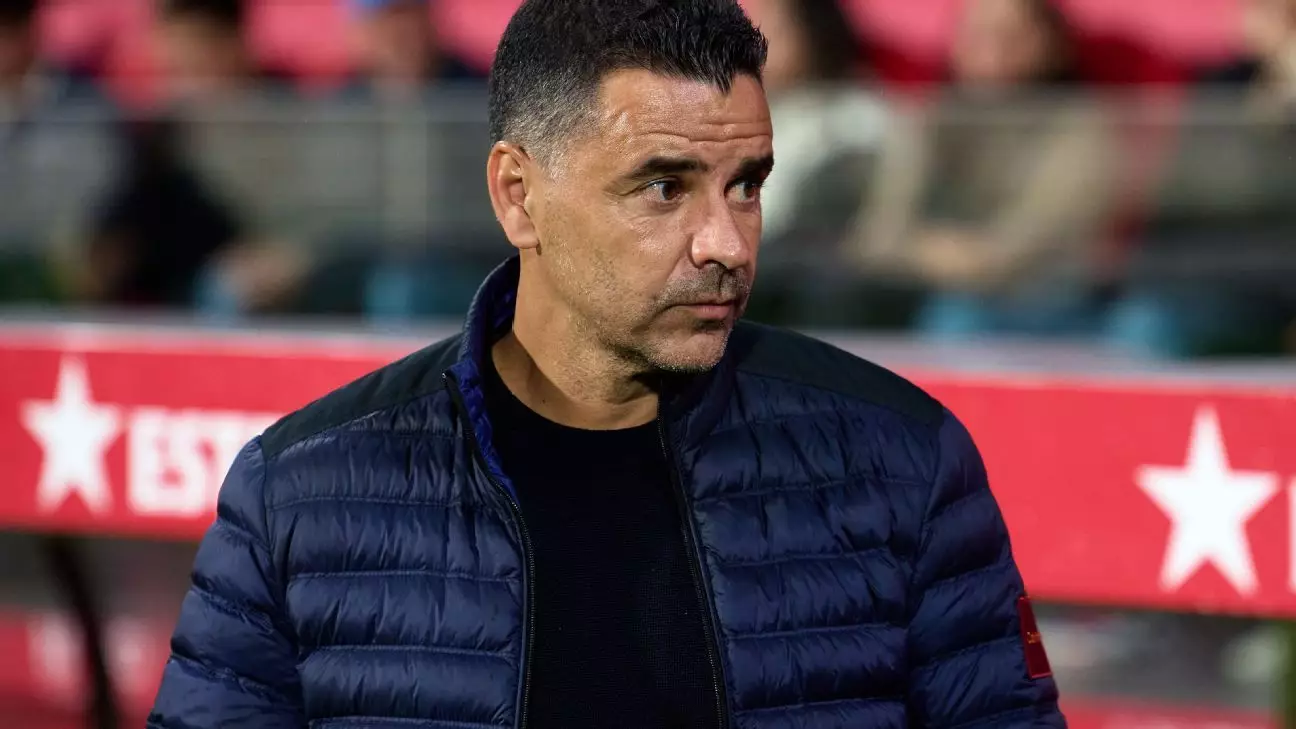Girona FC’s coach, Míchel Sánchez, has recently found himself at the center of attention due to a health scare that rendered him unable to take his place on the sidelines for a crucial match against Villarreal. The announcement, made public by the club, sheds light on the coach’s hospitalization, although the specifics remain undisclosed. At the age of 49, Sánchez’s situation raises important questions about the pressures faced by coaches in the high-stakes world of professional football.
It is both fascinating and alarming how often the human side of sports is overshadowed by the relentless drive for success. While details about Sánchez’s condition remain vague, the club communicated optimism regarding his recovery. His own remarks—that he feels well but must take a step back—highlight a sobering reality: even those at the helm, directing the exciting theatre of football from the sidelines, are not immune to health issues, particularly in this demanding environment.
The Stakes for Girona FC
With the backdrop of Míchel’s absence looms a heavy burden for Girona. Following an unsettling streak of eleven winless matches, the club is precariously positioned just above the relegation zone. Fans may feel a cocktail of anxiety and frustration as they witness their team slide down the ranks of LaLiga. This season has historically seen Girona performing admirably; a third-place finish last year and a foray into the Champions League were significant milestones. However, the current scenario pushes them into survival mode, desperately vying for points that could mean the difference between remaining in LaLiga and facing relegation.
Sánchez’s statement exudes confidence in his team despite his physical absence. This notion of trust and shared responsibility is crucial. Football, after all, is about teamwork—not only among the players on the field but also between the coaching staff and executives. Míchel’s insistence that his group can rally together speaks volumes about the culture he has fostered within the club. It invites fans to hold onto hope, believing that even in challenging times, spirit and determination can prevail.
Navigating an Unforgiving Path
The coming games will prove pivotal not only for the technical aspects of the game but also for the emotional fortitude of both the team and its supporters. Girona will face Villarreal, an opponent with its own ambitions in the league, and then travel to Real Valladolid—an all-important fixture considering Valladolid’s relegation status. Yet, beyond strategy and tactics, there exists an unquantifiable element: the mental and emotional state of the players and staff.
To succeed, Girona will need to harness resilience, exemplifying a strength that transcends individual talents. The pressure to perform while grappling with the absence of their head coach adds complexity to their already difficult situation. Sánchez’s health scare turns the focus from typical matchday preparations to a more profound lesson about balance—between ambition and well-being, between the drive to succeed and the need to care for oneself.
As Girona navigates the unpredictable waters of LaLiga, it serves as a reminder that behind every jersey, every strategy, and every goal, there are real people facing real challenges. The upcoming matches may define this season, but the echoes of Míchel’s experience will linger much longer, prompting all involved to reevaluate what it means to push through adversity.

